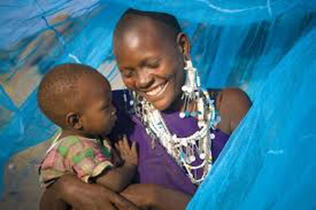
Staff of LSTM recently participated in ISNTD Bites- the recent conference of The International Society for Neglected Tropical Diseases which was held at the Royal Geographical Society, London UK
The ISNTD Bites conference series has been established to highlight and discuss the key issues around vector evolution and control methods with an aim of improving the understanding, control and evolution of Neglected Tropical Diseases and the conditions associated closely with them.
The one-day conference comprised plenary sessions around Epidemiology and surveillance technologies, Innovation in vector control, Impact of resistance and a session on Dengue.
In parallel to the plenary sessions, attendees to ISNTD Bites 2013 participated in a number of focused workshops which ran throughout the day.
In a session on Impact of resistance, Professor Janet Hemmingway gave a presentation on work of IVCC and an overview of the current research portfolio and the current status of results.
In the Bites handbook, Professor Hilary Ranson gave an interview on controlling mosquito vectors of human disease where she set out the three priority areas for research in vector control with focus on how to reduce the gap between adaptive vector control strategies and changing disease transmission dynamics. These were Vector ecology and behaviour, Vector competence and the impact of insecticide resistance.
In the interview, Professor Ranson also talked about the work of LITE – The Liverpool Insect Testing Facility, based at LSTM in Liverpool which is currently the only widely accessible facility able to test new insecticide products against a range of fully characterised insecticide susceptible and resistant strains.
Helen Williams, Head LITE attended as delegate and LITE was featured in an article in the Bites handbook entitled “Shedding LITE on insecticide resistance”
The interest in LITE was also supported by the launch of the new LITE website this week.
